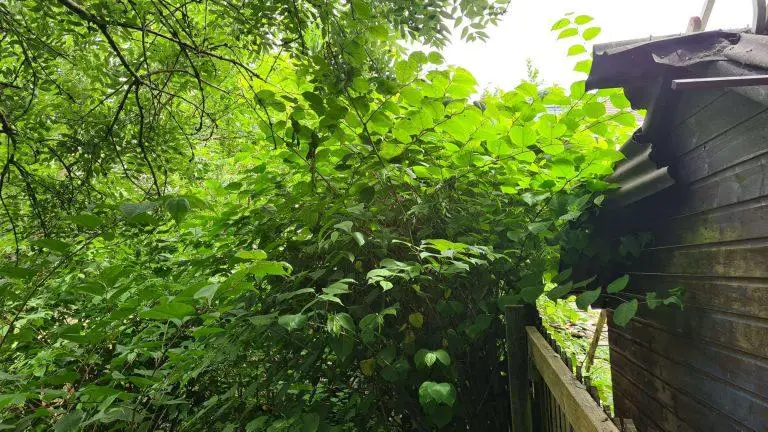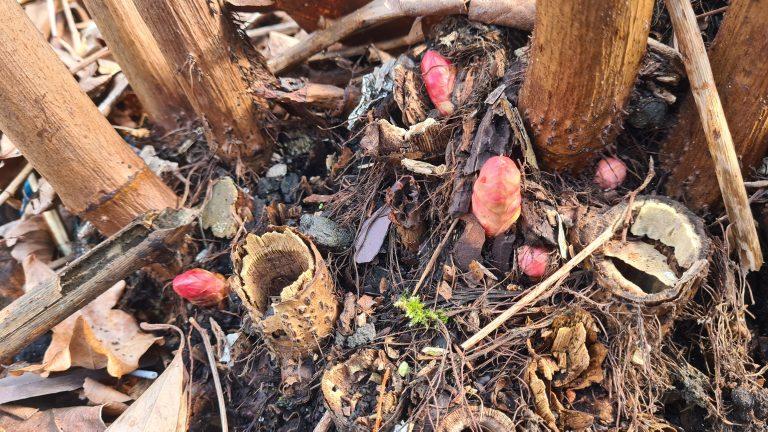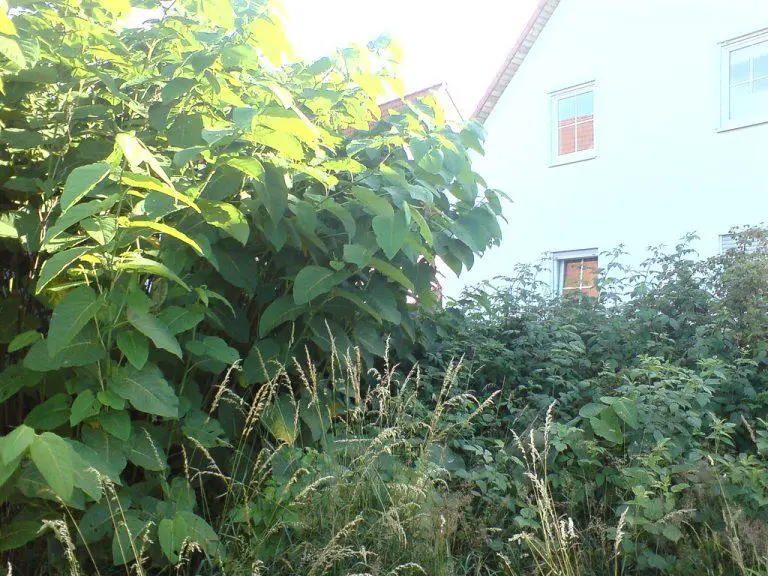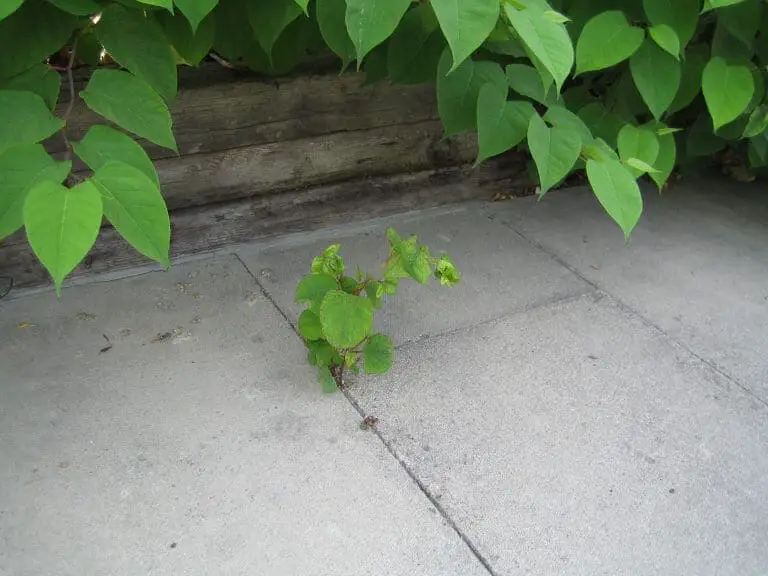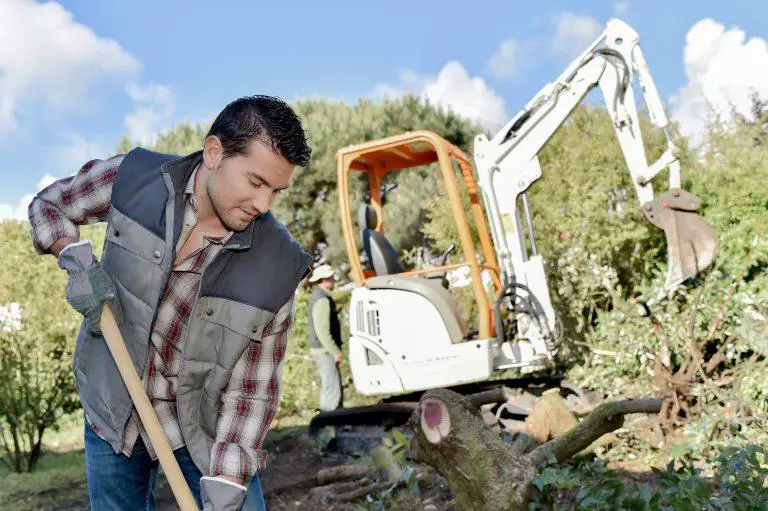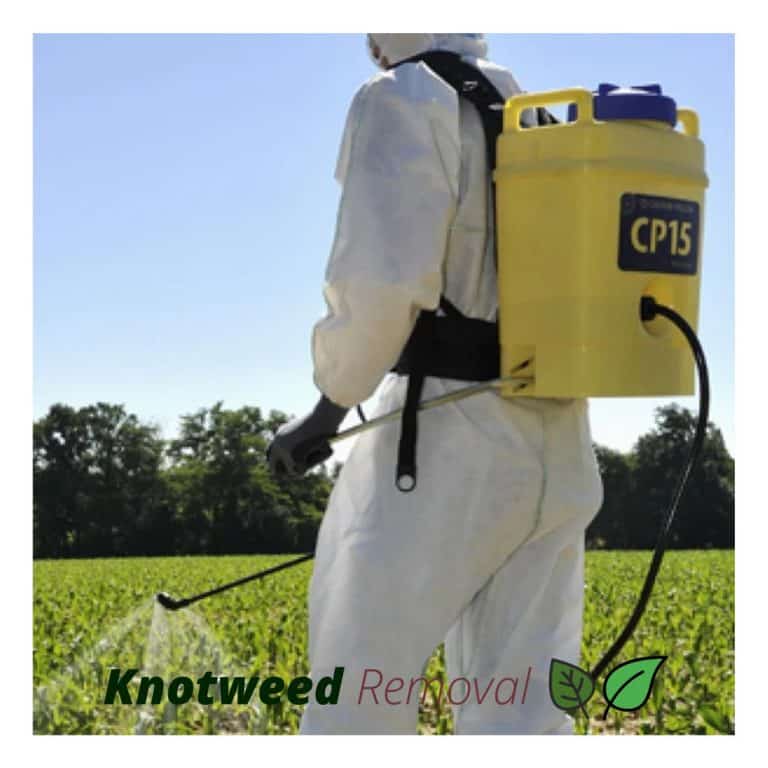Japanese knotweed is an invasive plant that can cause massive property and structural damage within a short time. This weed is not easy to identify; hence you should seek expert help in identification once you suspect you have Japanese knotweed in your garden. Remember, there are a good number of plants mistaken for Japanese knotweed.
Why is Japanese knotweed such a problem?
You should be concerned if you find Japanese knotweed in your garden. This plant has grown rapidly and spread fast through its root system, making it hard to eliminate it.
It can grow through the hard ground; the roots can go up to 4 meters deep. This weed can cause damage to the drainage system, crops, and properties in general. Unfortunately, there are no known predators that feed on it.
Due to its deep roots and ability to grow fast, it becomes challenging to eliminate it. Properties have been sold at a lower price because of the presence of this weed. There are cases of banks declining to offer mortgages for properties that are affected by this plant.
The government classifies this weed as controlled waste. This means that there are consequences for anyone that disposes of the weed irresponsibly.
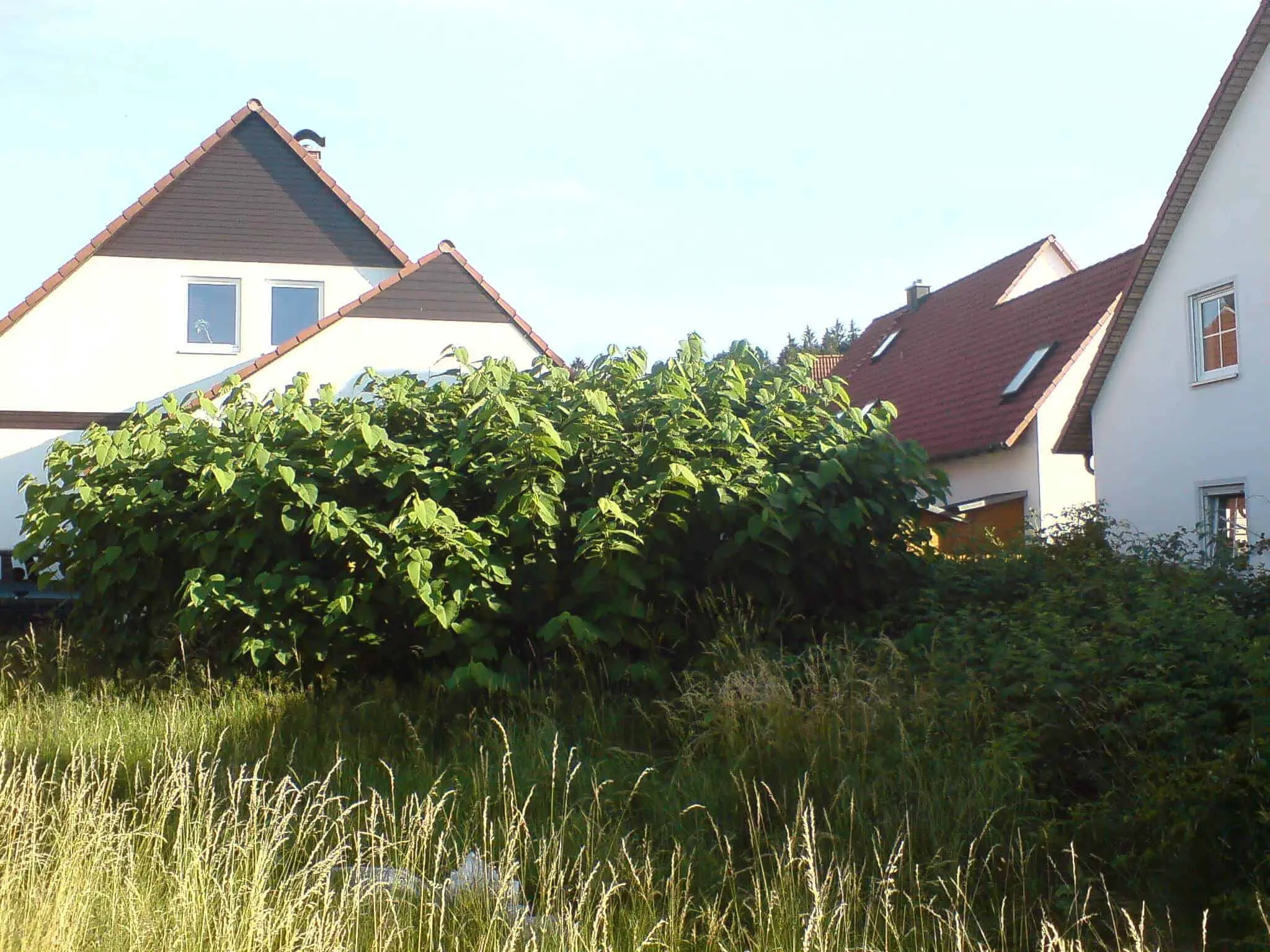
What to do
Here are the effective actions you can take:
Tell your neighbours
Knotweed in your garden can rapidly spread to your neighbours’ property. This makes it your responsibility to inform your neighbours in time. Chances are their properties will need treatment to stop the weed from growing back to your garden.
Knotweed is no longer a personal issue; it is a community problem. The early you share the problem, the early you can eliminate it to prevent further spread.
There are several local councils and environmental bodies all around the UK that you can contact for better advice on how to deal with the weed in your garden. Information such as how to dispose of the weed will ensure that you are not breaking the law in any way.
Go to work
There are several ways in which you can eradicate this weed:
- Use insecticides that contain glyphosate. It would help if you sprayed during flowering, which occurs in the late summer. You can respray during mid-summer and early spring.
- Cutting back the stems is another effective way to kill this weed. Remember to apply a weed killer inside the cut stems.
- Thirdly, try to dig the knotweed, but be sure the roots will be deep, it needs patience to remove all the stumps. Dry the waste and burn it afterwards.
Contact experts
You may not have any other option other than getting professional help after all your efforts fail. You can contact your local authorities to recommend a specialist you can use.
Hiring a professional for the job might be pricey, but worth it in the end. They also know the proper licensed herbicides and chemicals to help eliminate the knotweed for good.
It is always advisable that you insist on taking a look at their certificates. It would help if you also had a guarantee for any work. Ensure that they come for follow-up appointments to inspect for any regrowth.
- Having an agreement indicates the intervals of the treatments until the Japanese knotweed is fully eliminated.
With a dedicated expert, Japanese knotweed in your garden should not worry you. You should also follow the instructions given by the specialist. Weed eradication can be achieved through combined efforts; you have to be involved as much as possible.
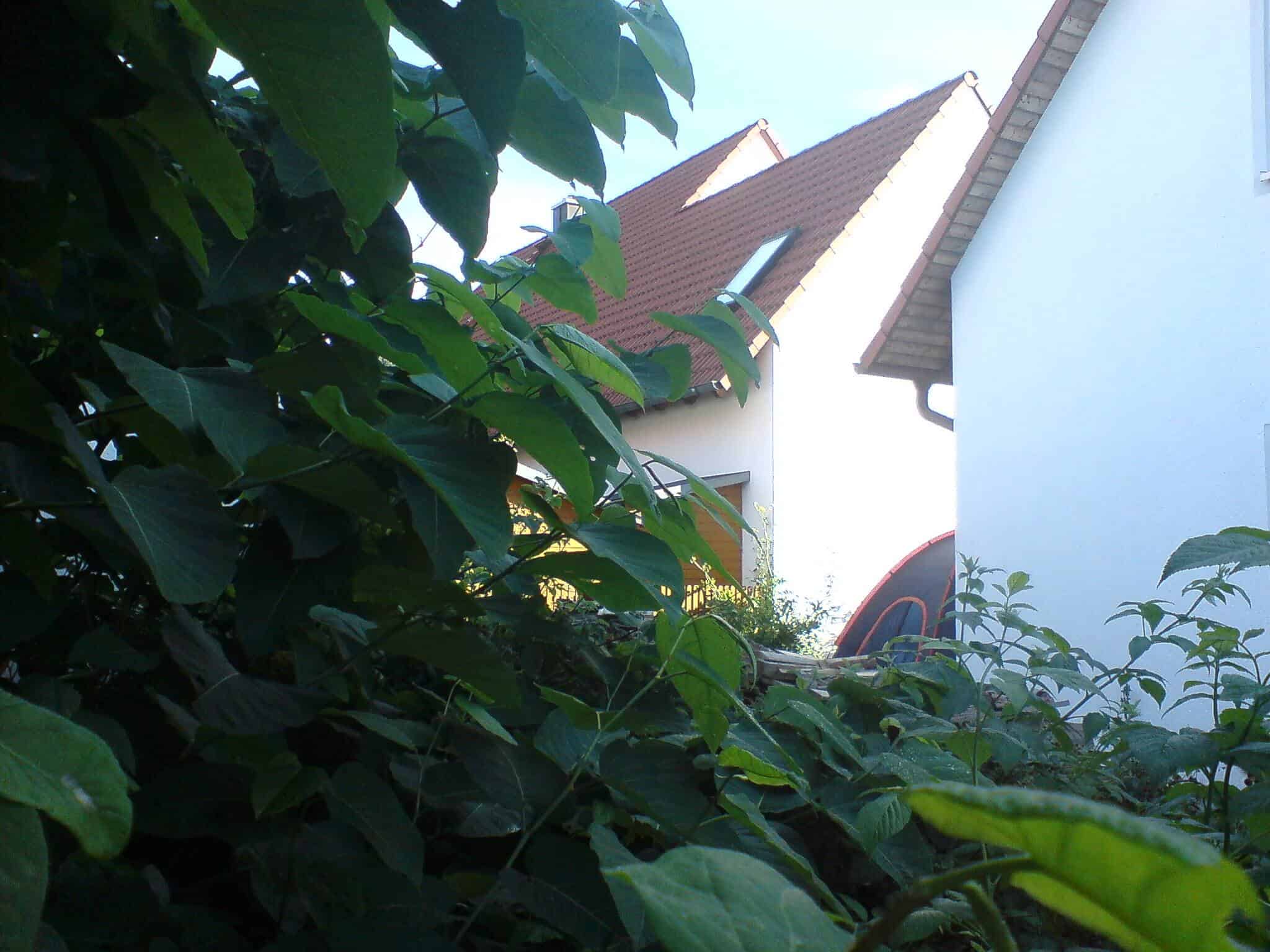
What not to do
Here are some of the actions you shouldn’t take when you discover Japanese knotweed in your garden:
Avoid trimming the weed
You should not cut the weed or the grass surrounding the area. Cutting or trimming the knotweed will cause fast spread; remember the cuttings should be disposed of separately. It is illegal to dump them in your general home waste. This weed should be dumped as controlled waste under the UK environmental laws.
Do not use the weed killer.
Most household weed killers will be ineffective when applied in incorrect quantities or during the wrong season. In most instances, the weed killer will stunt the weeds, which will make expert removal challenging. That is why you need something much, much stronger herbicide that contains Glysophate.
Dispose of the weed into the wild
You can be fined heavily for disposing knotweed contaminated soil to the wild. It would help if you supervised the waste disposal or use your trusted specialist.
One must use a registered waster carrier and a permitted landfill site or recommendable dumping site. It is also illegal to sell soil that is contaminated with knotweed. Such soil can only be used after proper treatment.
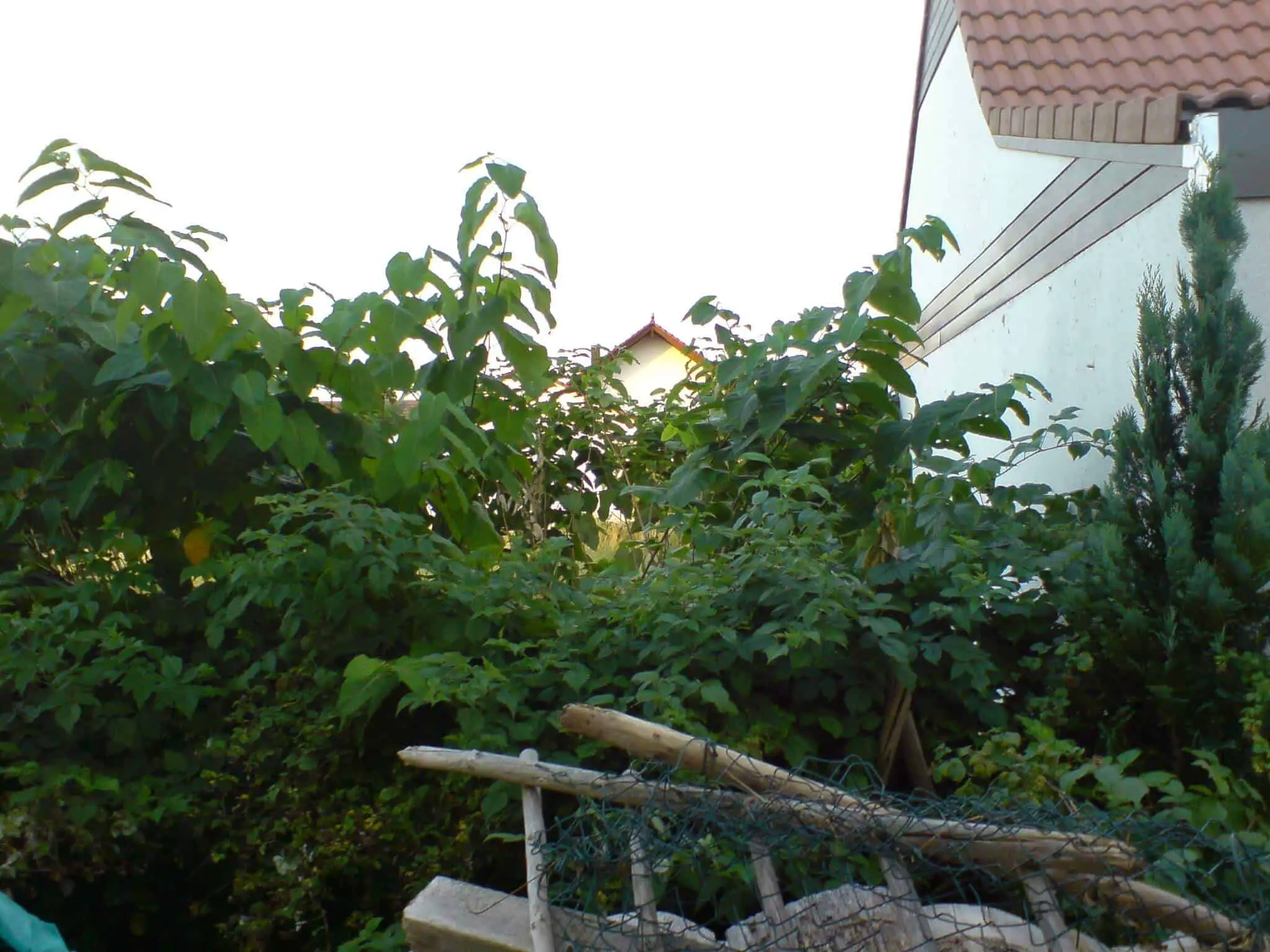
Is it against the law to have Japanese knotweed on my land?
Is it legal for this weed to be growing on your land? It is illegal to grow this weed but not illegal to have it naturally growing on your land. Additionally, it is against the law to be irresponsible about it, leading to the spread of the weed to your neighbouring land.
The law holds you responsible for any encroachment resulting from the weed.
It is always best to talk to your neighbour about the possible solutions to get rid of this weed. This means that you will have to share costs that will arise. Remember that this weed can only be managed professionally. This is the only sure way to eliminate it from the property permanently.
The authorities recommend that you put your neighbour on notice in writing the moment you find the weed on your property. You should explain the potential damage and actions needed and when you need them to act.
Can you sell your property with Japanese knotweed in your garden?
It remains your duty to inspect your property for Japanese weed. You will be asked about the status of your property during the selling process. It only makes sense to eradicate the weed as early as possible to avoid inconveniences if you wish to sell your property.
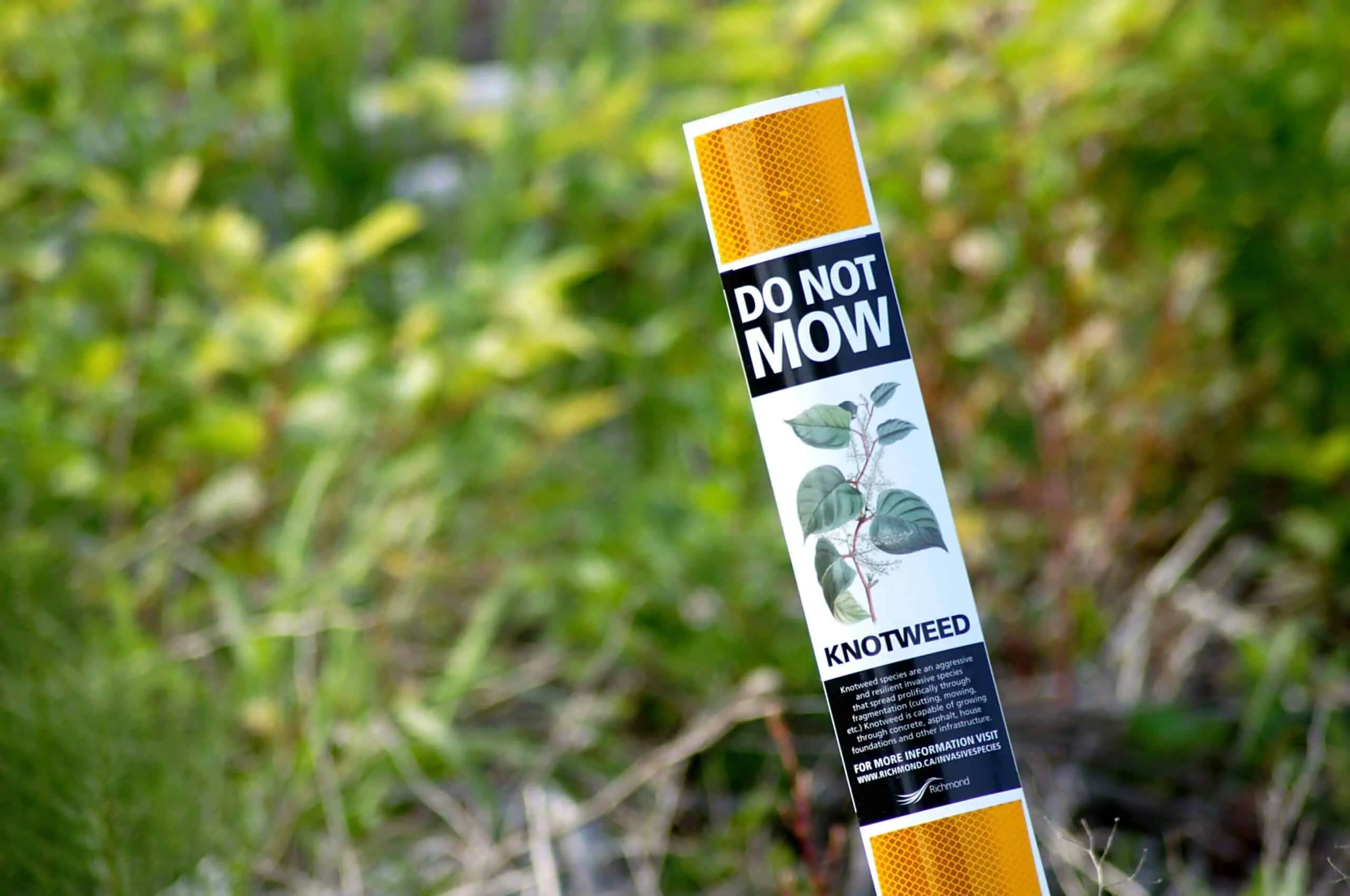
Conclusion
Getting rid of Japanese knotweed in your garden might not be easy. However, with your dedicated efforts and those of a specialist, you will be able to eliminate it in the long run.
Want to know more about Japanese knotweed in your garden?
Knotweed Removal aims to provide the most up-to-date information, help and advice for YOU to make informed decisions. If you are unsure or uncertain about how to proceed, please reach out to us and we will gladly come back and advise you as best we can.
Governmental advice can be found here and the UK law covering the removal of Japanese Knotweed as stated under the Wildlife and Countryside Act 1981 can be found here.
The best means to contact us is via our email – hello@knotweedremoval.tips
Do not forget we have a library of blogs covering many areas relevant to Japanese Knotweed, our free downloadable How-to Guides and Product Reviews on the latest methods being employed to eradicate or remove Japanese Knotweed.
Knotweed Removal, UK

